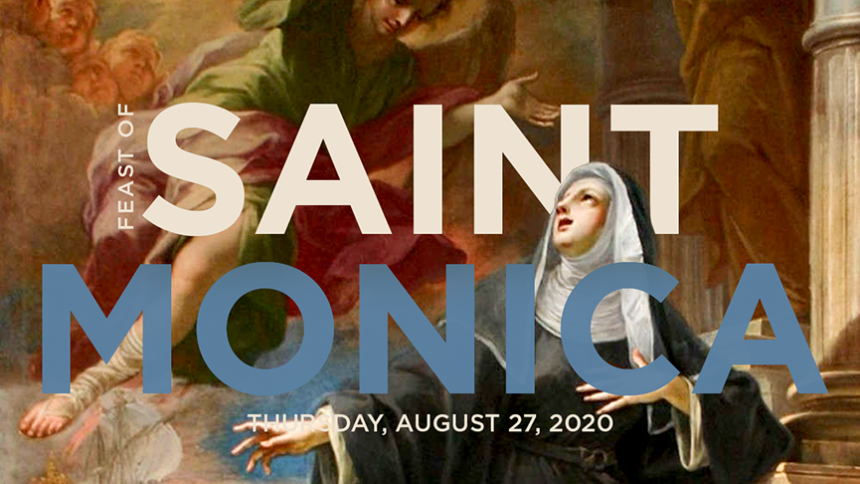
Today is the Feast of Saint Monica (322–387), the mother of the great theologian and bishop, Saint Augustine of Hippo. He often ascribed his conversion from a life of heresy and moral dissolution to the prayer, example and tears of his pious mother.
A native of Thagaste in north Africa (present-day Souk Ahras in Algeria), Saint Monica’s sufferings also included a cruel mother-in-law and a philandering pagan husband, Patricius, who also converted to Christianity under the saintly influence of his wife.
We asked Cheryl Olsen, Administrative Assistant at the Diocese of Lansing, to give us her reflections on the life and legacy of Saint Monica. Cheryl is a wife, mother and grandmother. Here is what she had to say:
“Despite enduring difficult times and challenging circumstances, Saint Monica saw the beauty in her life’s vocation as a wife and mother. She demonstrated heroic patience during her trials in life and suffered patiently and with a deep faith in God’s goodness as she persevered in daily prayer for the conversion of her wayward son, Augustine.”
“For many mom’s today, Saint Monica’s story may not be far from what we experience in our own family lives. We take care to raise our children in the Christian faith, only to watch them drift from the Church as they discover their newfound freedoms of adulthood. Throughout the seasons of life, our prayers seem to quickly turn from petitions to help them prosper in school and hopes for enduring friendships to those of mournful pleas for their personal safety and the salvation of their eternal souls.”
“But what a remarkable and joyful assurance Saint Monica gives in witness to the power of persistence prayer and the goodness of our Lord. Through humility, a constant habit of prayer, and a strong devotion to Christ, her testament serves as a reminder that God’s ‘Yes’ can often be delayed because persistence itself can teach us many valuable lessons … and tenacity can be the vehicle of abundance graces. Saint Monica, pray for us!”
* Image: The Angel Appears to St. Monica by Pietro Maggi (1680 – 1738)
